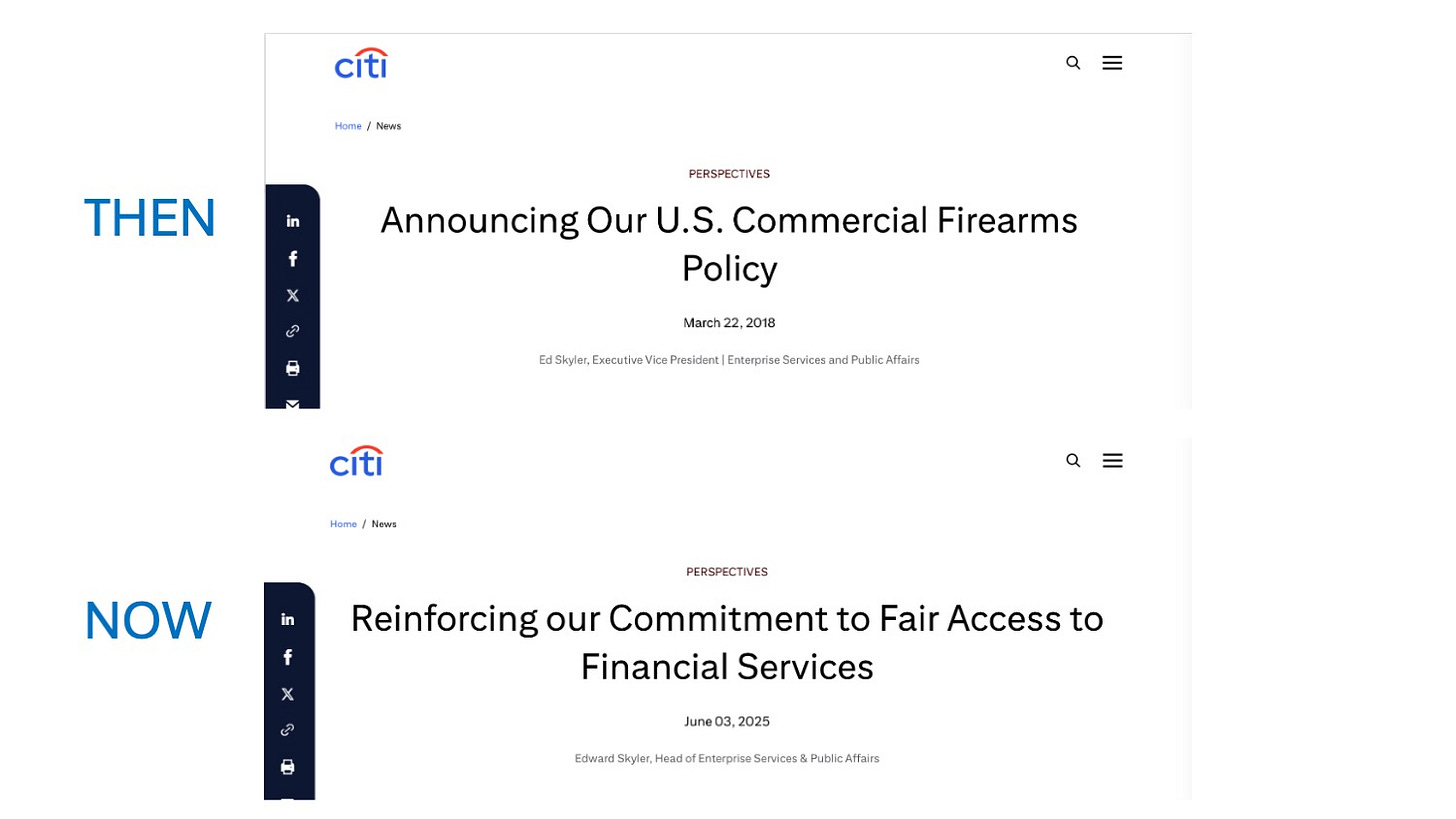This week Citigroup joined the line of corporations that have backed away from issues that inflame the second Trump administration. The bank announced that it abandoned a policy that placed conditions on loans to commercial firearms dealers. Citi also took pains to “clearly state that we do not discriminate on the basis of political affiliation,” drawing an equivalence between this and its longstanding anti-discrimination policies on race and religion.
The commercial firearms policy was a legacy of Trump’s first term. In 2018, Citi responded to the mass shooting at Marjory Stoneman Douglas High School in Parkland, Florida, by mandating that its firearms-dealing customers raise the buying age to 21, conduct background checks, and discontinue the sale of bump stocks and high-capacity magazines. Citi was the first of the big banks to announce a commercial firearms policy. JPMorgan Chase and Bank of America followed suit with their own policy changes.
Then-CEO Michael Corbat framed the adoption of the policy as a decision driven by values. “Banks serve a societal purpose—we believe our investors want us to do this and be responsible corporate citizens,” he said.
Citi spun this week’s retreat into a declaration of victory:
“The policy was intended to promote the adoption of best sales practices as prudent risk management and didn’t address the manufacturing of firearms. Many retailers have been following these best practices, and we hope communities and lawmakers will continue to seek out ways to prevent the tragic consequences of gun violence.”
While writing Speaking Out: The New Rules of Business Leadership Communication between 2021 and 2023, I understood that the political and social issues facing businesses at the time would change. The book documented the so-called woke backlash in real time as it was hitting brands like Disney and Bud Light. I was also aware that corporate engagement with political and social issues has waxed and waned over decades. Issues that emerged on corporate agendas in the wake of the social unrest of the Sixties faded from view by the Reagan years. I expected the current era to prove no different.
What I failed to anticipate was how a second Trump administration would differ so much from the first. Corporations in a wide range of sectors had spoken out during the first term on issues ranging from civil rights to carbon emissions to immigration policy. The culture of intimidation and reprisal that took root last November made it clear that the rules were different this time around.
Some corporate leaders have raised their voices over the past six months to take issue with tariffs affecting global trade or to express their continued commitment to diversity policies. For now, though, most are keeping their heads down. Michael Corbat’s responsible corporate citizen is a distant memory.




